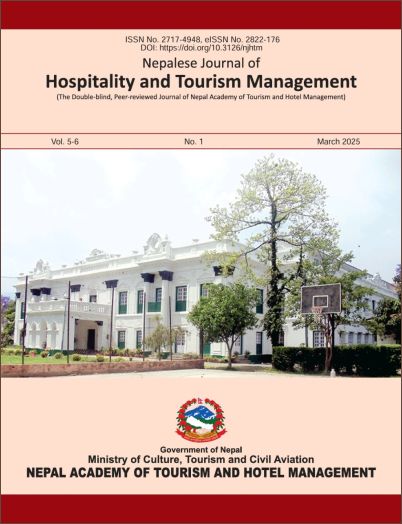The Effect of Consumer Experience on Brand Loyalty: A Study of Boutique Hotels in the Kathmandu Valley
DOI:
https://doi.org/10.3126/njhtm.v6i1.76487Keywords:
Boutique hotel, brand loyalty, experience economyAbstract
In the context of the boutique hotel segment in the Kathmandu Valley, this study examines the effects of consumer experience on brand loyalty with reference to the stimulus-organism-response (S-O-R) theory. The main purpose of this study is to examine the effect of aesthetics, escapism, and entertainment experiences that foreign consumers and guests have acquired from the service quality, attributes, activities, and facilities of boutique hotels in the Kathmandu Valley on their brand loyalty towards the boutique hotel segment. This research consists of 110 foreign consumers and guests who have derived emotions fulfilments and experiential enrichments from the facilities, attributes, activities, and services of boutique hotels inside the Kathmandu Valley. This study finds that customer experiences within the realm of aesthetic appeal, escapism, and entertainment have positive effects on brand loyalty of consumers towards boutique hotels in the Kathmandu Valley. Besides, this study remains consistent with S-O-R theory, as this study finds that functions, facilities, attributes, programs, events, products, services, and environments of boutique hotels in the Kathmandu Valley generate experiences and positive emotions that affect customers’ preferences and brand loyalty. In the context of an experience-based economy, this study suggests that boutique hotels in the Kathmandu Valley need to offer various amenities, structures, and features that enable their customers to interact with the aesthetic, entertainment, and emotional sphere of experiences that lead to brand loyalty for the boutique hotel market.





